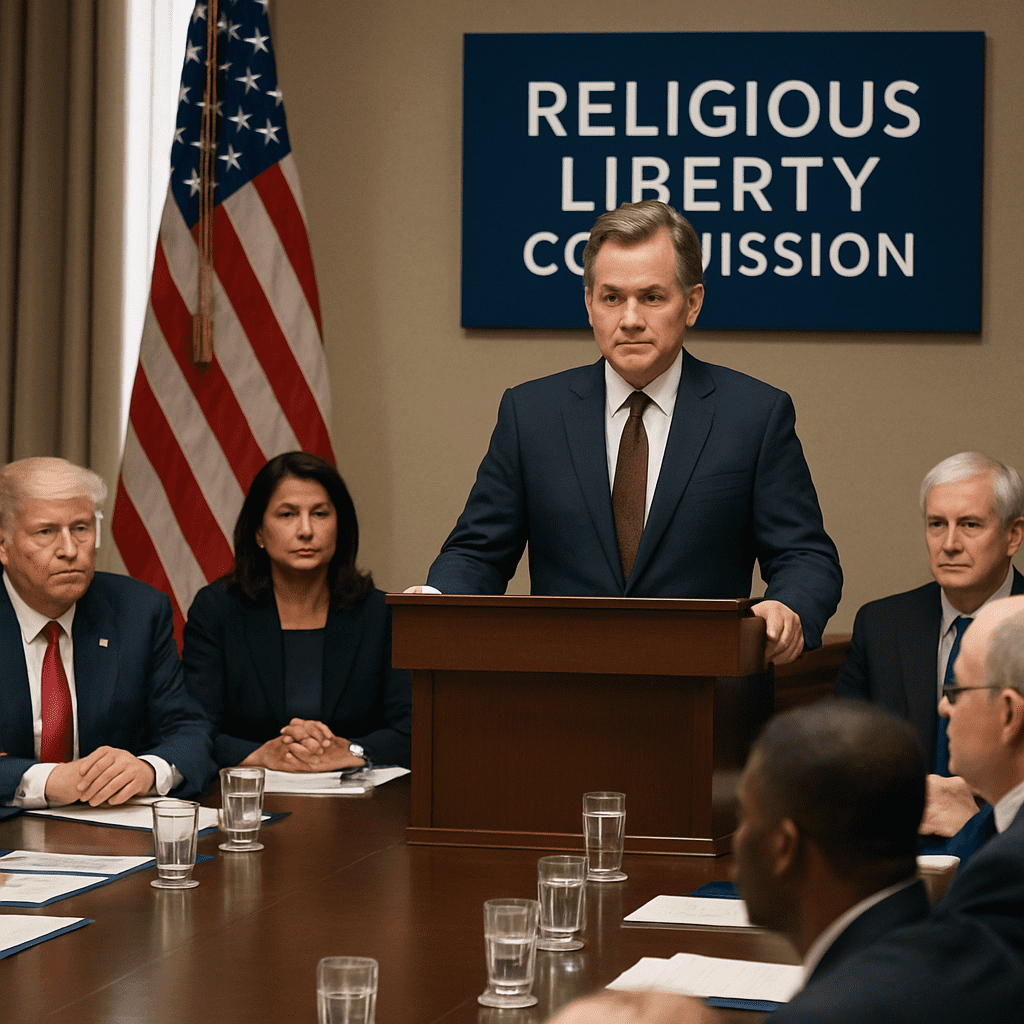On May 1, 2025, President Donald Trump signed an executive order establishing the Religious Liberty Commission, a decisive move to reinforce the nation’s commitment to protecting religious freedoms. Announced during the National Day of Prayer, this initiative underscores the administration’s dedication to upholding the rights of faith communities across the United States.
The Commission is tasked with investigating and promoting policies that safeguard religious liberty. Its primary objectives include identifying threats to religious freedom and celebrating America’s rich religious pluralism. The Commission is set to operate until July 4, 2026, unless extended, providing ample time to address pertinent issues and implement necessary measures.
Lieutenant Governor Dan Patrick chairs the Commission, bringing a wealth of experience in public service and a strong commitment to faith-based initiatives. He is joined by notable figures such as Dr. Ben Carson, Dr. Phil McGraw, and Pastor Paula White. This assembly of leaders is poised to offer diverse perspectives and expertise in advancing the Commission’s mission.
The establishment of the Commission aligns with the administration’s broader efforts to eradicate perceived anti-Christian bias within federal institutions. In February 2025, President Trump signed an executive order creating a task force dedicated to ending such biases. This task force is responsible for reviewing the activities of all federal departments and agencies to identify and eliminate policies or practices that may discriminate against Christians. The task force also seeks input from various stakeholders, including faith-based organizations and individuals affected by anti-Christian conduct, ensuring a comprehensive approach to addressing these concerns.
While the Commission’s formation has been lauded as a necessary step to protect religious freedoms, some observers have noted the predominantly evangelical composition of its membership. This focus ensures that the Commission is well-equipped to address the specific challenges faced by evangelical communities. However, the administration remains committed to considering the perspectives of all faith groups to promote a truly inclusive approach to religious liberty.
The Commission’s work is expected to involve extensive collaboration with various federal agencies, including the Department of Justice, the Department of Education, and the Department of Health and Human Services. This interagency cooperation aims to ensure that policies and practices across the government align with the nation’s commitment to religious freedom. Such coordination may require additional resources and staffing to effectively implement the Commission’s recommendations.
As the Commission embarks on its mission, it is anticipated that its efforts will lead to the development of new policies and the revision of existing ones to better protect religious liberties. This process may involve navigating complex legal and bureaucratic landscapes, potentially leading to an expansion of governmental oversight in matters of faith. While this expansion is a practical necessity to achieve the Commission’s objectives, it underscores the importance of balancing governmental intervention with the preservation of individual freedoms.
The administration’s proactive stance in establishing the Religious Liberty Commission reflects a commitment to addressing concerns about religious discrimination and ensuring that faith communities can practice their beliefs without fear of bias or persecution. As the Commission’s work progresses, it is expected that any initial challenges will be addressed through thoughtful policy adjustments and the allocation of appropriate resources. With time and dedicated effort, the Commission aims to fulfill its mandate of safeguarding religious liberty for all Americans.
—
Julie Harris writes about faith, pro-life laws, and religious liberty. She follows cultural legislation through the courts and legislatures, framing each as a necessary protection of moral order—even as her reporting carefully notes how enforcement can tread into personal life. Julie’s pieces often imply the government is trying to do the right thing, even if it isn’t clear who decides what that is.



